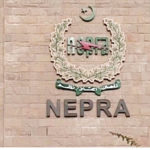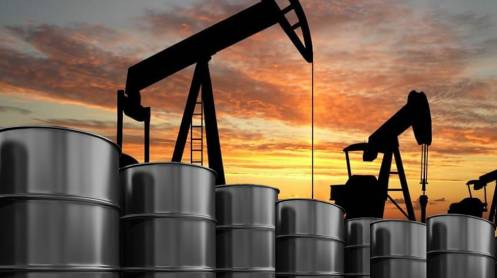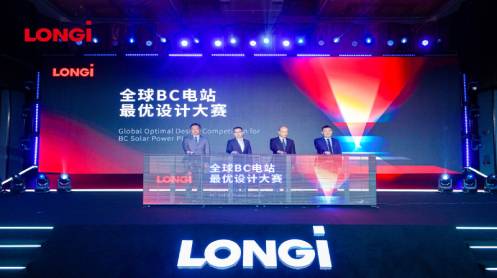ISLAMABAD: National Electric Power Regulatory Authority (Nepra) on Thursday approved increase in electricity tariffs of Discos for five months and reduction for three months under monthly fuel price adjustment mechanism to be passed on to consumers in August and September 2020.
For November, 2019, Nepra approved an increase of Re 0.9824 per unit with positive financial impact of Rs 7.082 billion, for December 2019, Rs 1.8880 per unit, with a financial impact of Rs 13.800 billion, for January, 2020, Re 0.9380 per unit, positive impact Rs 7.010 billion, for February 2020, Re 0.3915 per unit, positive impact, Rs 2.647 billion and for March 2020, Re 0.0671 per unit, with an increase of Rs 5.596 billion. The tariff will be reduced from April 2020 i.e., Re 0.6853 per unit, with a negative impact of Rs 5.596 billion, May, 2020, Rs 1.1708 per unit, a negative impact of Rs 13.689 billion and June 2020, Rs 1.2484 per unit, with a negative impact of Rs 16.171 billion.
The domestic consumers using upto 300 units and agriculture sector will not face the brunt of positive adjustments but they are not eligible for any relief from negative impact, which implies that tariff will certainly be increased for these categories.
The Authority also reserved determination on Discos’ requests of quarterly tariff adjustments for two quarters for which Discos have sought an increase of Rs 1.62 per unit in tariff to recover Rs 162 billion from consumers. This increase will be effective from September 2020 when the collection of previous adjustments is over. Ministry of Energy has requested Nepra to approve uniform adjustments for all the Discos.
The decision was taken by the Authority, comprising Chairman Nepra, Tauseef. H. Siddiqui, Vice Chairman Saif Ullah Chattha, Member, Balochistan, Rehmat Ullah Baloch and Member Sindh, Rafique Ahmad Shaikh.
The total impact of positive adjustment has been calculated at Rs 30.9 billion whereas negative adjustment is of Rs 35.4 billion, showing an overall negative impact of about Rs 4.6 billion. Four months (three months positive and one month negative) will be passed on in August and four months (December 2019, February, April and June, 2020) will be passed on in September 2020.
“We want to club two positive and one negative so that overall impact on consumers should be negative. This mechanism is within the powers of the regulator,” Chairman Nepra said.
Chairman observed that delay in submission of FCA data put additional burden on the consumers, and directed CPPA-G to provide power purchase data to the regulator in time.
Chairman Nepra, who was furious at NPCC for using expensive furnace oil in December, which ultimately affects the consumers, vowed to club positive and negative impact in FCA in a way that minimum impact is passed on to consumers.
“NPCC is using furnace oil of Rs 5 billion in a month and people are protesting the large bills,” he added.
However, Vice Chairman, Nepra Saif Ullah Chattah was of the view that the regulator’s job is to determine the impact of FCA, positive or negative, adding that it is up to the Ministry of Energy to decide the mechanism i.e., whether to pass it or not to the consumers.
“This is the responsibility of the Ministry to find out a solution of positive and negative FCA. We have done our work as per the specified formula. The system should examine it, why are we so concerned about it? We should proceed in accordance with our normal course,” he continued.
Chattha further stated that the proposal to club negative and positive impact has no relevance to the hearing and this issue can be separately taken up with the Ministry.
Director General Tariff Sajid Akram while assisting the Authority stated that Discos do not pass on negative impact on domestic consumers who use upto 300 units in a month and agriculture consumers. He further contended that clubbing positive and negative impacts would be difficult for the government.
This is a policy issue and both the government and the regulator have to look into it, he added.
Nepra’s technical team informed the Authority that some of the adjustments related to RLNG-related power plants were over-stated and have been adjusted.
Chief Financial Officer (CFO), CPPA-G, Rehan stated that CPPA-G’s adjustments of Rs 48 billion (Rs 31 billion and Rs 17 billion) are due, and requested the Authority to clear the backlog. However, Chairman Nepra directed CPPA-G to provide authentic and verified data to the regulator to avert delays in approvals.
Chairman Nepra and General Manager, NPCC, Muhammad Ayub exchanged views on the use of furnace oil which is expensive as compared to other fuels like gas and RLNG. Ayub was of the view that NPCC runs furnace oil-fired power plants as per requirements and if Nepra wants to stop this practice, it should issue a direction. After his arguments, discussion on this issue ended.
Shahid Sattar, Executive Director APTMA appreciated Nepra for clubbing two positive adjustments and one negative adjustment, adding that he feared that the Ministry would not do it.
“We want stable prices. Nepra should find out a way to determine prices which should remain stable for some time,” he suggested.
The Authority also approved quarterly tariff adjustments of two quarters, in principle, to recover Rs 162.363 billion from consumers at a rate of Rs 1.62 per unit. This increase will be effective from September 2020.
Discos had sought adjustment of Rs 72.770 billion for second quarterly adjustment October to December 2019, of which Rs 60.84 billion is required under Capacity Purchase Price (CPP), Rs 2.851 billion against variable O&M cost, Rs 1.662 billion, UoSC & MoF, Rs 7.778 billion as impact of T&D losses on monthly FCA and Rs 95 million as impact of extra/ less purchases.
For third quarterly adjustment January to March 2020, Discos sought adjustment of Rs 89.363 billion, of which Rs 82.385 billion is CPP, Rs 1.5 billion variable O&M, Rs 1.188 billion UoSC &MoF, and Rs 4.555 billion impact of T&D losses on monthly FPA. Discos sought a reduction of Rs 20 million as impact of extra/less purchases.
During the discussion, CFO, Gepco claimed that electricity generated from Hubco Narowal is not supplied to his Disco.





